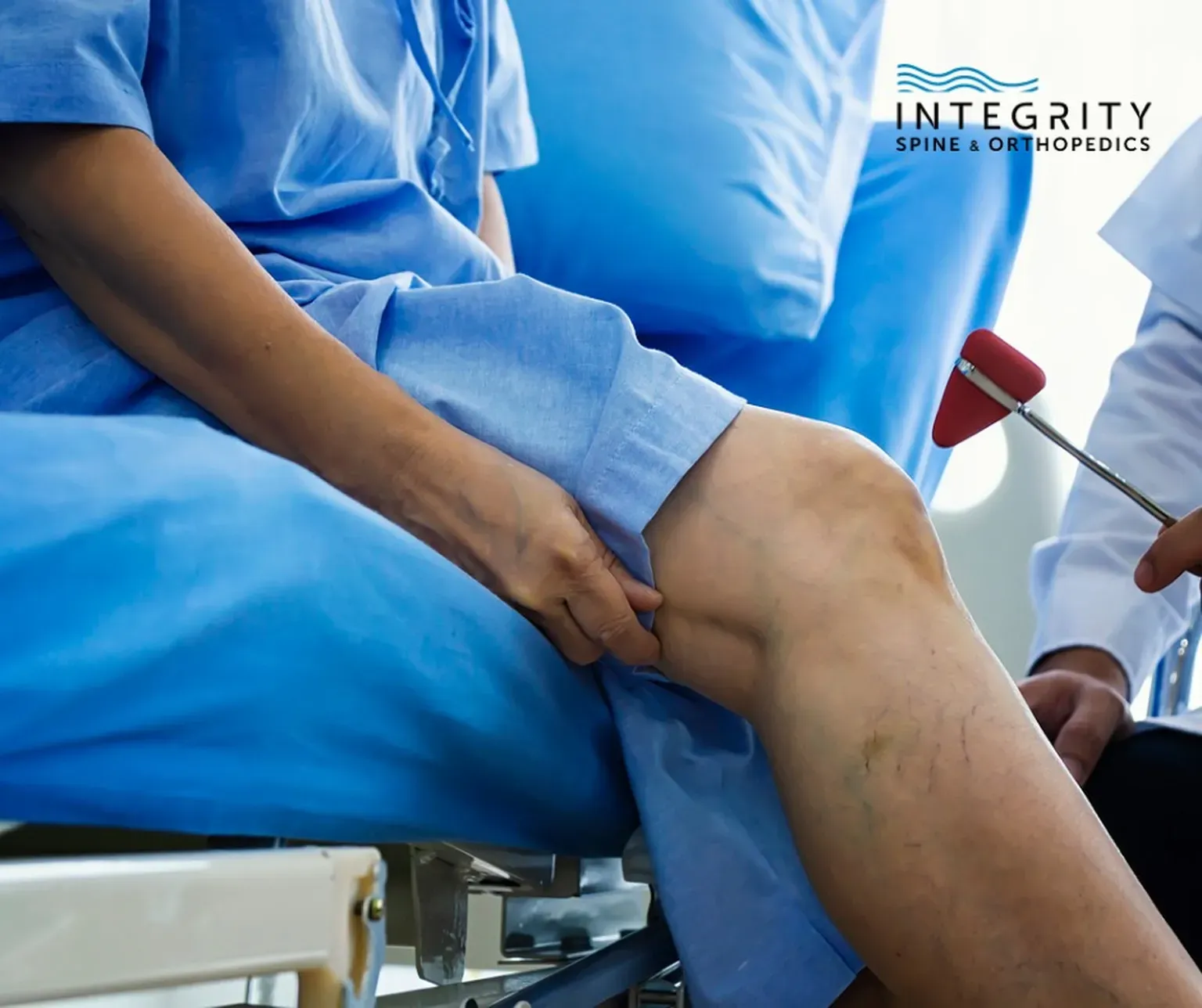Neurosurgery & Orthopedic Surgeons in Jacksonville

What Should I Do if I Have a Dislocated Knee?
A dislocated knee is a rare, but very painful and serious injury. Dislocation occurs when the bones in the knee joint are not in proper alignment. The bones may be disrupted by a traumatic incident like a fall, car accident or sports collision.
A dislocated knee is a rare, but very painful and serious injury. Dislocation occurs when the bones in the knee joint are not in proper alignment. The bones may be disrupted by a traumatic incident like a fall, car accident or sports collision. Knee dislocation is one of the most painful knee injuries you can experience and it can have serious, long-term consequences if the injury isn’t treated properly.
Dislocation can tear or damage the ligaments, tendons, bones, muscles, nerves and blood vessels around the knee joint. Keep reading to learn how to identify a dislocated knee and what steps to take next.
HOW DO I KNOW IF MY KNEE IS DISLOCATED?
If you suffer a dislocated knee, you’ll know right away that you have a serious injury. A dislocation is very painful and causes immediate symptoms that worsen over time. You may be able to identify your injury as a dislocation from the following signs and symptoms:
- A popping sound during the time of injury
- Severe knee pain
- Swelling, redness, bruising and tenderness
- Visible deformity or crookedness of the knee
- A feeling of instability or “giving out” in the joint
- An inability to bend or straighten the knee
- An inability to bear weight on the knee
- Numbness or lack of pulse in the foot
A dislocation can severely damage the ligaments, arteries and nerves around your knee and place the integrity of the joint and leg at risk. You should not attempt to pop the knee back into place on your own or treat the injury yourself.
WHAT SHOULD I DO NEXT?
Seek medical care immediately if you suspect you have a dislocated knee. Dislocation can affect blood flow and nerve sensations to the lower extremities and you might be at risk of losing your leg if proper blood flow isn’t restored. Your doctor will assess the pulses, blood pressure, nerve function, color and temperature in your lower leg to determine if blood vessels and nerves have been damaged. He or she will also take imaging exams like an X-ray or MRI to check for bone, ligament and tendon damage.
Some dislocations can initially be treated without surgery if there’s no blood vessel or nerve damage. In these cases, your doctor will manually pop the bones of the joint back into place. You’ll be given medication to dull the pain while this is happening. Afterward, your knee will be immobilized in a brace or joint to stabilize the joint while it’s healing. You won’t be able to move the knee or bear weight on it for a few weeks during the healing process. After the pain and swelling has gone down, your doctor may reassess the knee to determine if it needs reconstruction surgery to repair damaged tendons, ligaments and other soft tissues.
WILL I NEED KNEE SURGERY?
In many cases, a dislocation injury will require surgery. First and foremost, you may need emergency surgery if damaged blood vessels are restricting blood flow to your lower extremities. It’s vital that blood flow be restored or you risk losing the leg.
Second, you may need orthopedic surgery to address torn or damaged tendons, ligaments and cartilage around the knee. It’s also not uncommon for broken bones to be present from a dislocation. This surgery might not take place until several weeks after the initial injury, once the pain and swelling has gone down. Your orthopedic surgeon might perform a knee arthroscopy, a minimally invasive procedure that’s used to repair cartilage, tendon and ligament damage. Depending on the severity of the damage, you may require open surgery.
After orthopedic surgery, you’ll need to keep wearing a brace or splint for several more weeks.
WHAT’S THE LONG-TERM OUTLOOK AFTER A DISLOCATION?
Your long-term prognosis depends on the severity of the injury, the amount of damage you sustained and how quickly and effectively treatment was administered. After your injury heals, you’ll need rehabilitation to regain strength and mobility in the knee joint. Rehabilitation after a knee dislocation is slow, intensive and may last for up to a year. Some people continue to experience pain, stiffness and loss of full range of motion in the long term.
Unfortunately, your knee may never regain its full strength after a dislocation. If you play sports, you might not be able to perform at your prior level or your doctor might recommend not doing certain high-impact activities anymore. Your doctor might also recommend wearing a supportive wrap during activities.
However, with swift, effective care and rehabilitation, your chances look good for making an optimal recovery.
INTEGRITY SPINE AND ORTHOPEDICS TREATS SPINE AND JOINT CONDITIONS
If you’re in need of an orthopedic specialist for treatment of a dislocated knee or other painful knee injuries, call Integrity Spine and Orthopedics. Our board-certified orthopedic surgeons in Jacksonville, FL, perform minimally invasive arthroscopic procedures that can help you make a full recovery from a traumatic injury. Our clinics also offer general orthopedic and pain management services.
Let our team help you get back on your feet and back to doing the activities you love. Call us today at 904-456-0017 or reach out online to request an appointment. We also offer free MRI reviews to qualified patients who want a second opinion — contact us for more information.




